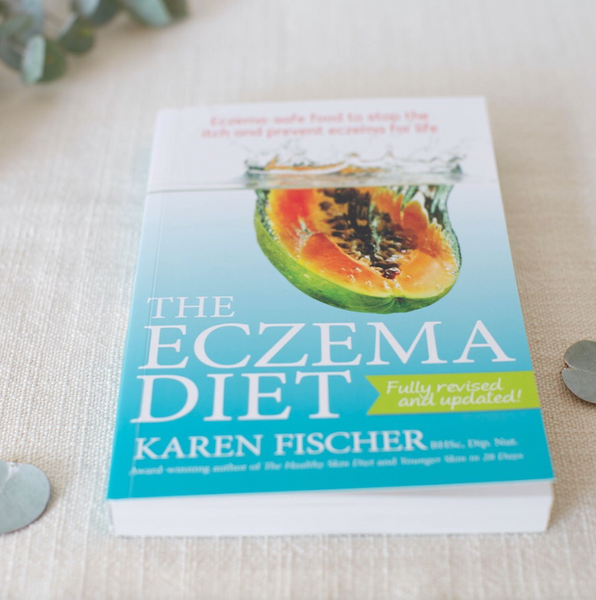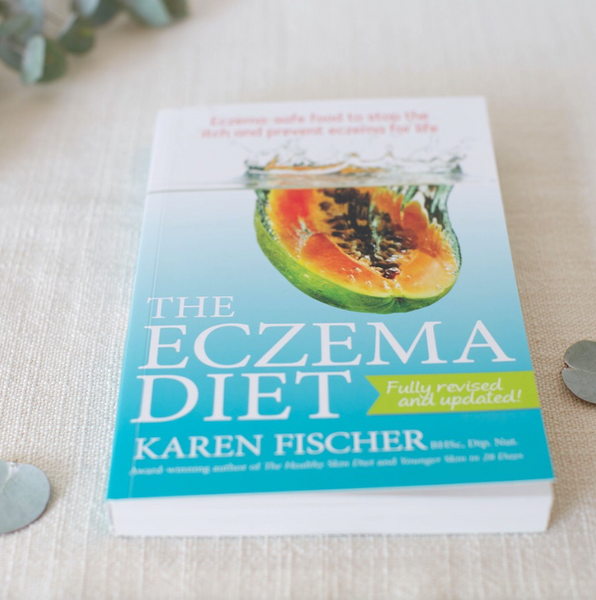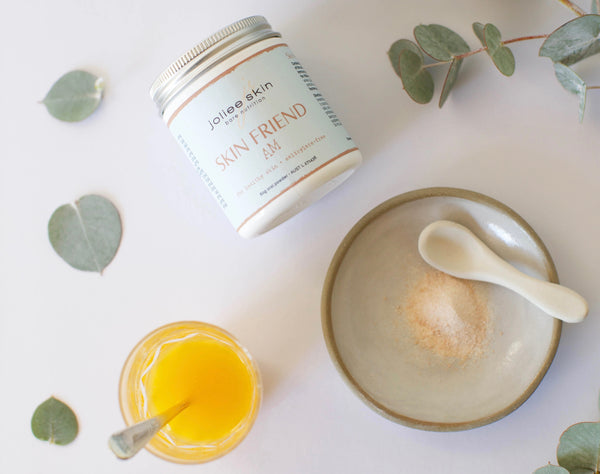As you read this, more than 32 million Americans are scratching their skin due to eczema. According to the National Eczema Association, eczema affects at least 10% of people in the United States. Eczema is a skin disorder that is triggered by allergens and other irritants, infections, extreme weather temperatures, and the one that we can control – stress.
If you want to escape the onset of eczema, you have to protect yourself from what triggers it. In fact, this skin condition is called a psychodermatologic disorder because eczema and stress almost always go hand-in-hand. This is just a scientific way of saying that it is a physical disorder that is tied to your mental and emotional health.
There’s no denying it – stress is the root of most of our health problems. It has even been linked to heart disease, for one, and many others. So, can stress cause eczema? Yes! And it makes perfect sense. The correlation between psychological wellbeing and skin health is so strong that there’s even a subspecialty in dermatology called psychodermatology.
Stress Induced Eczema – It’s a Thing!
The connection between eczema and stress has long been established. The scientific explanation behind this is that stress releases hormones that affect our immune system. People with eczema actually have weak immune systems, which in turn causes inflammation of the skin, and can manifest into itchy rashes or worse, painful blisters. Stress can also exacerbate the condition and cause your skin to flare up.
We all have our ways of coping with stress. Some people are able to take life’s challenges (and changes) lightly while some have difficulty digesting it.
I know, I know. Avoiding eczema from stress is easier said than done. Sometimes it’s just easier applying a cream and avoiding the stress altogether. There is certainly nothing wrong with a little natural eczema cream to get some immediate relief, but the key to getting a handle on your eczema permanently is determining how you can avoid the onset of symptoms altogether.
Here are some tried and tested tips to calm your body and say goodbye to stress induced eczema:
Meditation / Prayer Time
Set aside some quiet time (like 15 minutes) every day to take stock of your life. Lifting all your worries to a Higher Power will give you the serenity to cope with life’s challenges.
Try the Headspace app – it’s a great intro to meditation that will ease you in and get you hooked.
Spend Time with Others
Spend time with family, friends, and other support groups. The conversations will surely distract you from scratching. And it is not only your skin that will be improved but your relationships too! For additional help, check out the National Eczema Association’s online support group here.
Read More: 8 Ways to Relieve Stress In Children With Eczema
Self-Love
On the other hand, if there is anyone (or anything) in your life that is causing you stress, trying breaking away from that negative energy. Don’t feel guilty about it! It’s important to have some self-love too.
Prioritize and Delegate
If your list of to-do’s is getting too long and causing you much stress, learn to prioritize and delegate tasks. You don’t have to do everything all at once, or by yourself for that matter.
Relax
Breathe deeply and find time to relax. You can even do this while taking your morning or afternoon walk.
Exercise
Exercise is very important in improving your mood and it will help you sweat your toxins away.
Your choice of exercise doesn’t have to high impact – like Zumba (Although that’s fun too!). For something calm, try yoga, which improves your mindfulness and concentration. A double win!
A Gentle Bath
Have a good, but not necessarily long, lukewarm bath. It will relax you and soothe your itchy skin (if you use an oatmeal bath for eczema). Just don’t forget to use a gentle natural soap and moisturize afterwards. Learn how to find the best eczema soap here.
Also, avoid rubbing your skin dry with a towel. It will irritate your skin. Just pat it dry instead.
Sleep
Often overlooked, but a great sleep can have a real effect on both your happiness and wellbeing. Also, the right pajamas (made for eczema prone skin) can make all the difference in the world. Look for soft, comfortable eczema sleepwear for a good night’s sleep.
Alternative Medicine
Try alternative medicine such as acupuncture to relieve you from eczema caused by stress. But, if you’re not feeling brave enough to go under the needles of acupuncture, then go for its hand counterpart, which is acupressure for eczema or reflexology.
A simple massage can also help relax your tense muscles. Dim the lights and play some nature sounds while you’re at it for the ultimate spa experience.
Take a Vacation
A quick urban escape or brief weekend getaway will do and the change of scenery will do a lot of good for your senses. Just make sure your prep time and travel is stress free!
Start a Journal
If you have a knack for writing, then start a journal and write away. This will help eliminate the negative thoughts that are causing you stress.
A gratitude journal or self exploration journal are great tools for those who need guidance to break into the world of journaling.
See a Professional
If the stress seems too much to handle and you cannot find solace in your immediate circle, try seeking professional advice. The intervention could be what you need to heal your mind and your skin.
Whichever method you choose to relieve your stress, you need to find something you enjoy doing. Do you enjoy getting immersed in a film or book? Do you prefer spending time with friends? It’s really up to you to discover what will make you mentally strong. The bottomline – stress management is an integral part of treating eczema. Manage your stress and you’ll be able to manage your eczema as well.
Planning to have a baby?
If you are planning to get pregnant, or already are, you should avoid stress, as a recent study [1] showed that stress prior and during pregnancy leads to eczema in infants. So it’s not just YOUR skin that’s affected – your unborn child’s skin is affected too!
One Last Story…
To part, let me share with you this story of Bronya Humphreys [2], a 20-year old mom from England. She transformed her eczema into works of art with the use of make-up. She fought depression by not wallowing in self-pity and instead decided to accept her eczema. Accepting, embracing, and even celebrating her skin disease has enabled her to convert it into something that gives inspiration.
Learn more about the Power of Trust & Acceptance and the Impact on Eczema.
It’s true – you are not your skin condition. Accepting your eczema will not only make it easier to treat, but in time you will be able to live comfortably in your own skin.
Do you suffer from stress induced eczema? Let us know in the comments below!
Resources:
- https://www.deccanchronicle.com/lifestyle/health-and-wellbeing/040317/pre-pregnancy-stress-level-may-lead-to-eczema-in-future-child.html
- https://food.ndtv.com/health/pre-pregnancy-stress-may-lead-to-eczema-in-infants-1666091
- https://www.oddnaari.in/life/story/this-woman-transforms-her-eczema-into-pieces-of-art-using-make-up-127156-2018-02-05
About the Author
Saif is a Wellness Writer and Digital Marketing Expert at Healthy-Finds.com, a company committed to imparting the knowledge and access that people need for a long and healthy life. He usually loves to hangouts with rankings and work but when he is not working, he travels most of the time.
The post Eczema and Stress: Are They Related? Learn to Calm Your Mind and Skin appeared first on itchylittleworld.com.




 Winter’s cold and windy weather is a disaster for those of us whose cheeks are rosy at the best of times. Even if you live in a part of the world that doesn’t experience extremes of cold that are quite as intense as mine, the odds are that your winters are far cooler, rainier or snowier than your summers. If your skin’s anything like mine, that means you’re going to need to switch up your skin care products and the way you use them.
Winter’s cold and windy weather is a disaster for those of us whose cheeks are rosy at the best of times. Even if you live in a part of the world that doesn’t experience extremes of cold that are quite as intense as mine, the odds are that your winters are far cooler, rainier or snowier than your summers. If your skin’s anything like mine, that means you’re going to need to switch up your skin care products and the way you use them. While there are lots of overall
While there are lots of overall 




